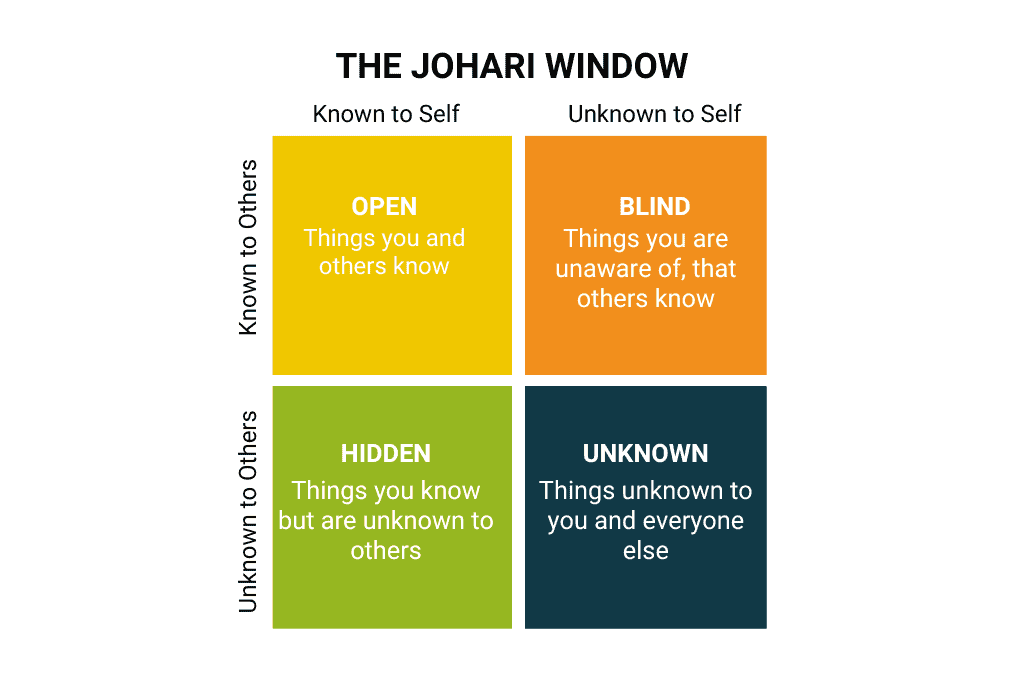Why Giving and Receiving Feedback Matters for Your Team’s Development — and How to Do This Well31/10/2022
In this article, we explain the benefits of effective feedback for employee and team development and why it is an important tool for leaders. We also debunk some commonly-held misconceptions and explain how to go about providing helpful, constructive feedback for your team using tools such as Johari Window and CEDAR framework. picture by Gustavo Fring on Pexels. “Feedback is the breakfast of champions.” Do you see feedback as important to the development of your team? Are you comfortable giving feedback to your team — the good and the bad? How do you react when you’re given feedback on your own performance and behaviour? You might not realise it, but feedback is critical in a business environment because your employees need and want feedback in order to grow and improve. According to one survey by Gallup, 69% of employees say they would work harder if they felt their efforts were recognised through feedback. However, according to a poll commissioned by Interact, 37% of managers say they are uncomfortable giving feedback, and 21% avoid giving feedback at all when it’s negative. The truth is we all want feedback, but none of us really want to hear it when it’s difficult, so providing your team with clear, constructive, actionable feedback is an important skill for leaders. It’s also important that you’re able to handle receiving feedback yourself and taking it on the chin when it’s not what you’d like to hear. This way, you can be an example to your team by using feedback positively and constructively. Feedback is valuable. It helps you learn more about yourself, your strengths and weaknesses, and how your behaviours and actions affect others. It also helps your team get along better — something to bear in mind when you consider that 60-80% of all organisational difficulties grow from strained inter-team relationships rather than individual lack of skills or motivation. Scheduling in regular cycles of feedback within your team dramatically increases their capacity to respond, adapt, and learn. Other benefits include boosted engagement, motivation, and confidence, which drive and encourage your team to perform at their best. Common Team Feedback MisconceptionsThere’s a commonly held opinion that feedback has to be critical, judgemental, and something that’s reserved for difficult colleagues or unwanted workplace behaviours. But according to Gallup, managers who received feedback on their strengths showed 8.9% greater profitability, and businesses that gave feedback to their employees had turnover rates that were 14.9% lower. The reality is that feedback can be a genuine gift for both the giver and the receiver. It’s about providing helpful insights to your team into what’s going well and what isn’t, but in a constructive way. For example: “I’ve always appreciated you seeing the big picture, and our larger company vision. The thing is, you’ve missed out some of the smaller details in your last few projects, like A, B and C. This set the team back, as they had to correct those oversights. Is there a way we can remedy this, perhaps creating a checklist or having regular check-ins for the next project?” Feedback is an investment in your people, and their learning and development. This is something that’s important to your employees, particularly the younger generation — over 60% of Millennials and GenX workers name professional development as key to job satisfaction. The Johari Window: a tool for explaining why feedback is important for your teamThe Johari Window model explains more about why feedback is important. This tool for personal development was developed by Joseph Luft and Harry Ingham (hence Johari) and is a straightforward, 4-box matrix that looks at what is known and unknown to both yourself and others:
In a nutshell, the Johari window explains that individuals and teams grow and develop by shrinking the Unknown area - by both sharing more of yourself with others - your thoughts and feelings, and asking for and receiving feedback from them. Feedback has the crucial function of helping you discover your blind spots, and these insights help you understand and get to know yourself better. How to Give Great Feedback to your TeamThe most important point about feedback is not to make it personal. Instead, make it about the person’s behaviour. Keep things objective, and don’t let emotions get in the way. Focus on the positive: how can we turn this around and improve, rather than “you’re doing XYZ completely wrong.” On occasions when you do have to give negative feedback, make it constructive by starting with the positive — think of it as a ‘good cop, bad cop’ scenario. Make sure what you say is clear, specific, and actionable. For example: “I wanted to have a chat about the work you did on the last project, the end result of which I was very pleased with. However, you missed a few key deadlines, which impacted the team. I know you worked hard on this, and looking back, it’s easier to spot the issues that caused this. I’d love it if you could be proactive in spotting these issues before they have a negative impact next time. How can we help you with this?” This way, the team member receiving the feedback comes away from the discussion with an action plan for improvement in mind. Offer a solution for the problem rather than just pointing the problem out! Don’t just jump in with feedback either. Colleagues will feel like they’re being blindsided and unfairly criticised. Instead, start by asking: "Can I give you some feedback?" This lessens the chances of them becoming defensive about the matter. Also, don’t forget to give feedback on things they have done well! And it should go without saying, to communicate feedback face-to-face where possible, and always provide negative feedback in private. This is particularly important when the feedback is difficult for the recipient to hear. Being able to handle a situation like this personally and empathically is a hallmark of a good leader. Give the employee in question the chance to respond, and then reassure them that they have your full support in resolving any issues. Feedback FrameworksAlthough there are several frameworks to reference, keeping it simple is often the best way. The SIBR Framework is a really helpful framework for giving feedback:
The SIBR model is great for giving constructive feedback. It lets you use evidential, contextual, and very specific information, as well as providing a formula for explaining the issue to the recipient and the action you would like them to take. There’s also the ‘Three C’s’ feedback model, in which you ensure your feedback is constructive, compassionate, and consistent. Or the STAR model — you may be familiar with this from recruitment and interviews, but the process (Situation or Task, Action, Result) works well with feedback too. Another practical model is the CEDAR feedback model, which includes five stages:
The beauty of this feedback model is that it encourages employees to take the lead in discussing their performance, motivating buy-in from them. It’s especially useful when giving difficult-to-hear feedback. Tips for Receiving FeedbackAs a leader, you can expect to receive feedback too, and this can be incredibly helpful for your own personal development. Asking your team for feedback can be an eye-opening experience. However, there needs to be a certain level of trust here in order for your team to feel safe in giving a frank, honest opinion. There are three things to remember when it comes to receiving and accepting feedback well:
Making a habit of seeking out more feedback is also vital, and you can do this by setting a date for a review, although 80% of employees say they want feedback in the moment rather than waiting for a review. In general being open to give and receive feedback shows your commitment to change and willingness to accept further feedback in the future. We hope this article has helped you understand why feedback is important, and also inspired you to give and receive feedback within your own organisation and team — with some actionable tips and takeaways to get you started. At School of the Wild, our mission is to help organisations work with nature to transform their teams and inspire a regenerative relationship with the world and each other. We bring leaders and teams outside to help you reconnect and think differently - including giving and receiving feedback - so that you’re inspired to change the way you work.
We incorporate activities like making fires, working with symbols and connecting with nature as part of creating space for meaningful conversations that build belonging and align your workforce with your values. Have a look at our outdoor team building programmes here, or get in touch for more information. Comments are closed.
|
Author & CuratorNigel Berman is the founder of School of the Wild. Archives
March 2024
|
Leaders |
About Us
Support |
|




 RSS Feed
RSS Feed



